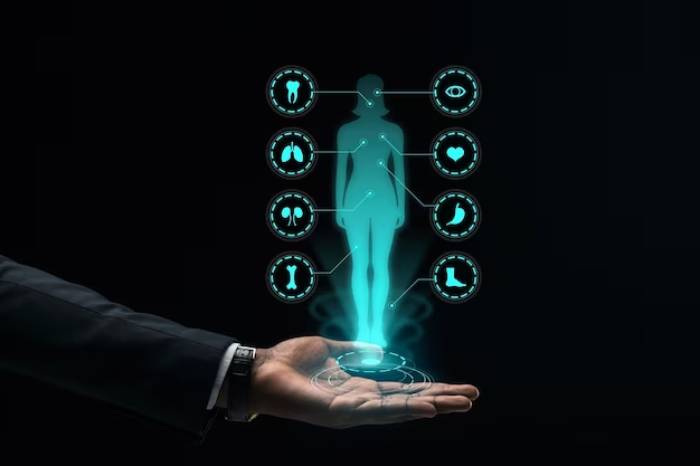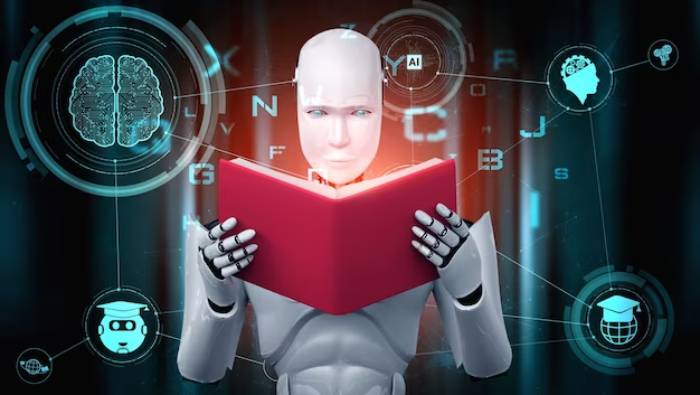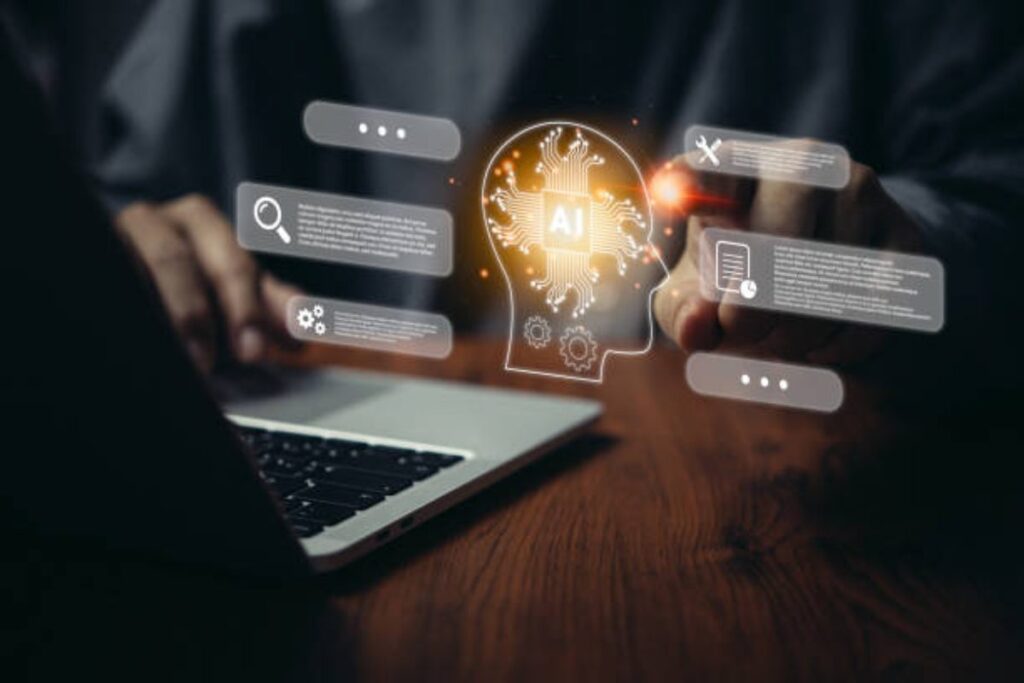Artificial Intelligence (AI) is unique of the most significant transformative and impactful technologies of the modern era. Defined as the simulation of human intelligence procedures by machinery, AI has revolutionized diverse sectors, shaping how we live, work, and interact. This introduction will delve into the realm of AI, exploring its significance, applications, and profound influence on various facets of our society.
In today’s fast-paced world, where data is abundant, and complexities are ever-increasing, AI emerges as a beacon of innovation. By harnessing the power of algorithms and computational processing, AI systems can perform tasks that typically require human intelligence. These tasks range from recognizing patterns in vast datasets to making real-time decisions and engaging in natural language conversations.
Healthcare: Revolutionizing Patient Care through Artificial Intelligence

Artificial intelligence has emerged as a transformative strength in healthcare, redefining the landscape of patient care, diagnostics, and treatment. This section delves into the innovative applications of AI in healthcare, showcasing how advanced algorithms and machine learning are enhancing medical practices and improving patient outcomes.
I. Predictive Analytics for Disease Diagnosis
- Data Analysis and Patient Profiling
- Utilizing AI algorithms to process vast patient data sets
- Creating detailed patient profiles for accurate diagnosis
- Early Detection and Prevention
- Identifying subtle patterns indicative of diseases
- Enabling proactive measures for disease prevention and early intervention
II. Personalized Medicine
- Genomic Analysis and AI
- Applying AI in genomic sequencing and analysis
- Customizing treatment plans based on individual genetic makeup
- Tailored Medication and Therapy
- Precision medicine: prescribing medications with high specificity
- Designing therapy regimens tailored to patients’ genetic predispositions
III. Robotic Surgery
- Surgical Robots and Precision
- AI-assisted robotic systems for surgical procedures
- Ensuring precision and minimizing invasiveness in surgeries
- Real-time Decision Support
- AI algorithms providing real-time insights to surgeons
- Assisting surgeons during complex procedures, improving decision-making
Revolutionizing Finance: Artificial Intelligence in the Financial Sector

The financial sector is undergoing a profound alteration thanks to the integration of artificial intelligence. This section delves into the innovative applications of AI in finance, illustrating how advanced algorithms and machine learning are reshaping the way financial institutions operate, analyze data, and interact with customers.
I. Algorithmic Trading
- Data Analysis and Market Trends
- AI algorithms analyzing vast datasets of market trends
- Identifying patterns and predicting market movements in real-time
- High-Frequency Trading
- Utilizing AI for high-speed, automated trading decisions
- Executing trades at unprecedented speeds, capitalizing on market fluctuations
II. Fraud Detection and Prevention
- Machine Learning for Anomaly Detection
- AI-driven algorithms identifying unusual patterns in transactions
- Detecting fraudulent activities in real-time, preventing financial losses
- Behavioral Biometrics
- Analyzing user behavior patterns for authentication
- Enhancing security by recognizing unique user interactions and gestures
III. Customer Service Chatbots
- Natural Language Processing (NLP)
- AI-powered chatbots capable of natural language understanding
- Providing 24/7 customer support, answering queries, and resolving issues
- Personalized Financial Advice
- Chatbots offering personalized financial recommendations
- Analyzing user data to suggest tailored investment strategies and financial products
Transforming Transportation: Artificial Intelligence in the Modern Age

The transportation sector is at the forefront of the AI revolution, embracing advanced technologies to enhance safety, efficiency, and sustainability. This section explores how artificial intelligence is reshaping how we move, revolutionizing everything from autonomous vehicles to traffic management and predictive maintenance.
I. Autonomous Vehicles
- Sensing and Perception
- Utilizing AI-powered sensors (LiDAR, radar, cameras) for environment recognition
- Processing sensory data to make real-time driving decisions
- Machine Learning for Decision Making
- AI algorithms learning from diverse driving scenarios
- Enabling vehicles to adapt to complex and dynamic traffic situations
II. Traffic Management Systems
- AI for Traffic Flow Optimization
- AI algorithms analyzing traffic patterns and congestion data
- Optimizing traffic signal timings and lane management for smoother flow
- Predictive Analytics for Traffic
- Using historical and real-time data to predict traffic bottlenecks
- Implementing preemptive measures to mitigate congestion before it occurs
III. Predictive Maintenance for Vehicles
- IoT Sensors and AI Analysis
- Equipping vehicles with IoT sensors to monitor various components
- AI-driven analysis predicting maintenance needs and potential failures
- Preventive Measures for Efficiency
- Implementing proactive maintenance schedules based on AI predictions
- Minimizing breakdowns, reducing downtime, and improving overall vehicle efficiency
Revolutionizing Education: Artificial Intelligence in Learning

Artificial Intelligence (AI) has revolutionized the field of education, offering innovative solutions to enhance learning experiences, tailor instruction, and improve educational outcomes. This section explores how AI applications transform students’ learning and how educators teach in the modern era.
I. Intelligent Tutoring Systems
- Personalized Learning Paths
- AI algorithms analyzing student performance data
- Tailoring lessons and exercises to individual student needs
- Adaptive Learning Techniques
- Dynamic adjustments to learning pace and complexity based on student progress
- Identifying and addressing areas where students need additional support
II. Automated Grading and Feedback
- AI-Based Grading Systems
- Utilizing machine learning for automated grading of assignments and exams
- Ensuring consistency and objectivity in grading processes
- Instant Feedback to Students
- AI-generated feedback on student submissions
- Providing immediate insights to students, aiding in self-assessment and improvement
III. Language Processing Applications
- Language Learning Apps
- AI-powered language learning platforms
- Interactive exercises, pronunciation analysis, and vocabulary building activities
- Enhancing Communication Skills
- AI-driven speech recognition and language analysis
- Improving students’ verbal and written communication skills through targeted feedback
Conclusion:

Embracing the Future with Artificial Intelligence
The mixing of Artificial Intelligence (AI) into various sectors, from healthcare to finance to transportation and education, has ushered in an era of unprecedented innovation and transformation. As we reflect on the diverse applications of AI discussed in this exploration, it becomes evident that this groundbreaking technology is not just a tool; it’s a catalyst for a revolution that touches every aspect of our lives.

